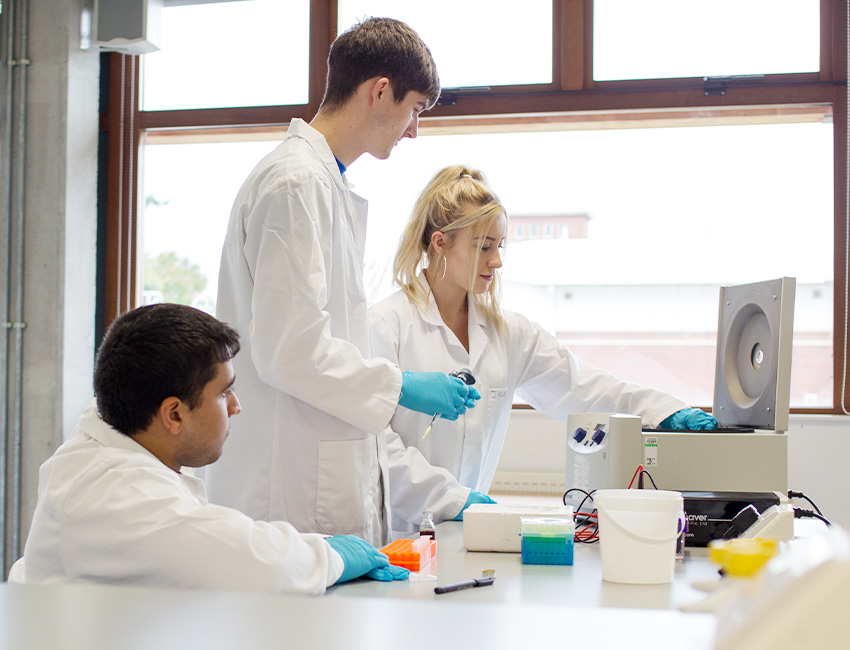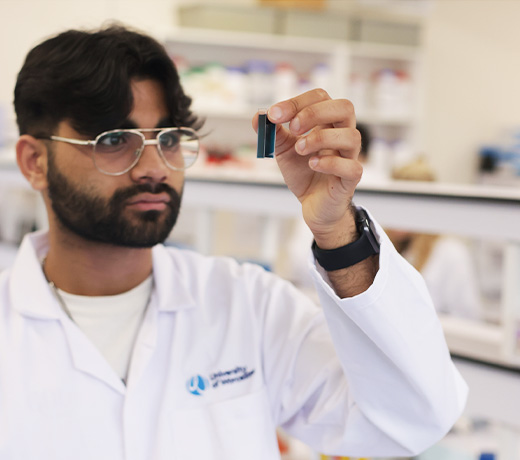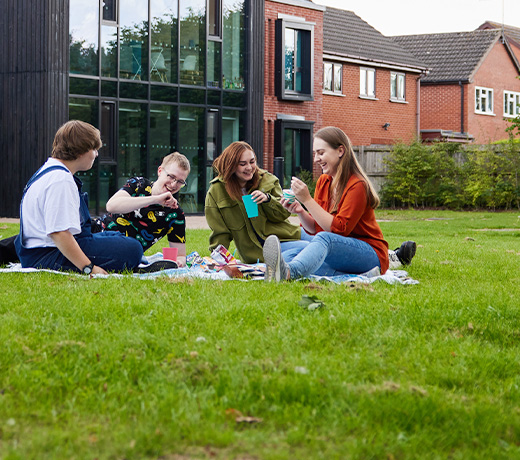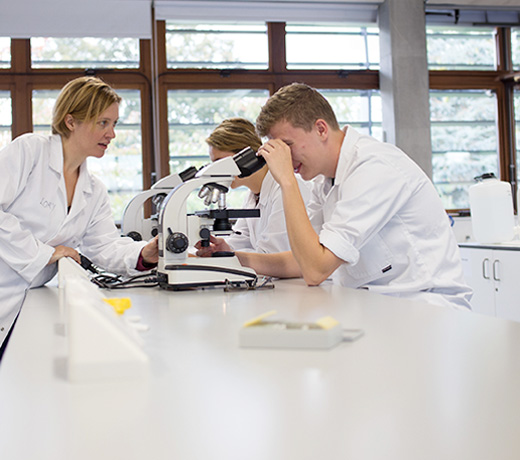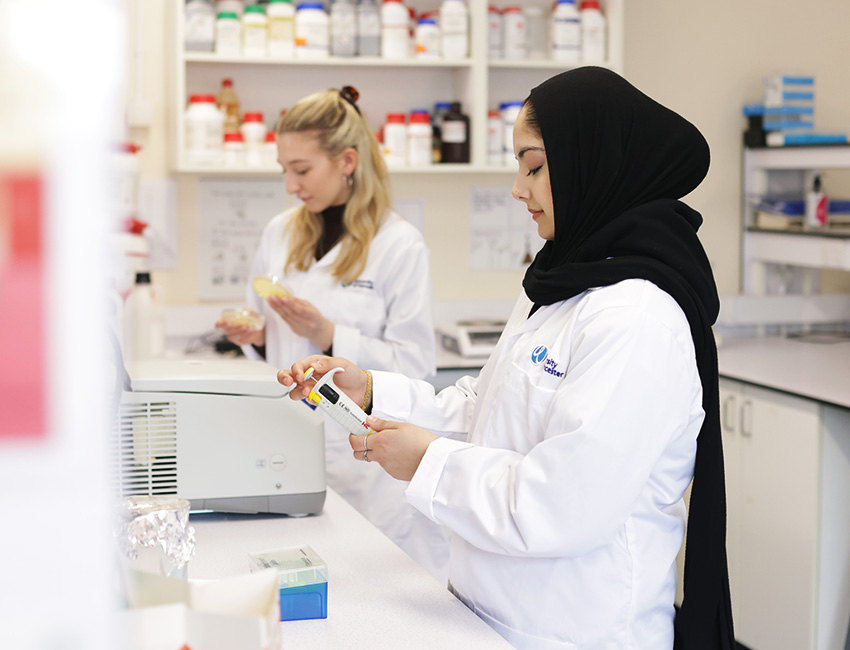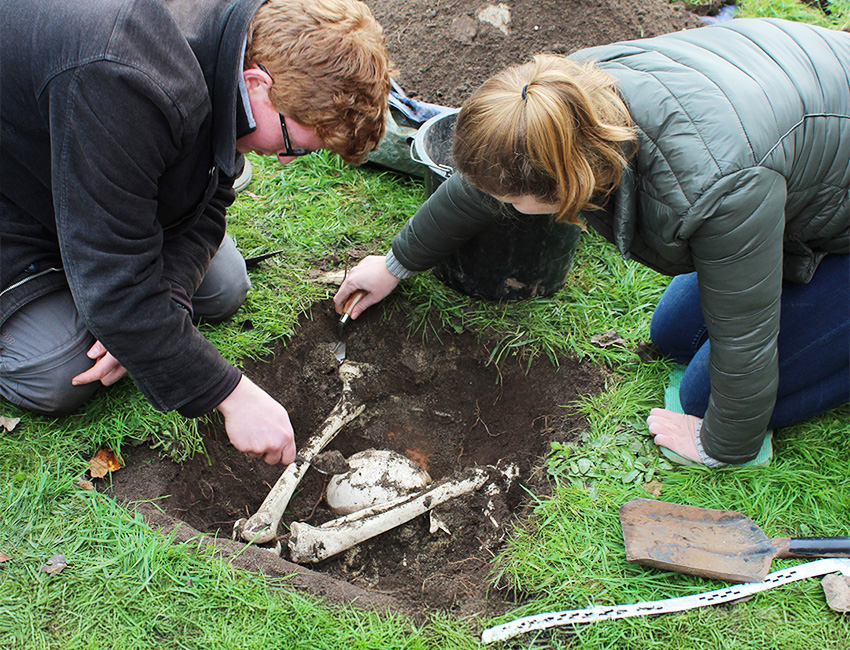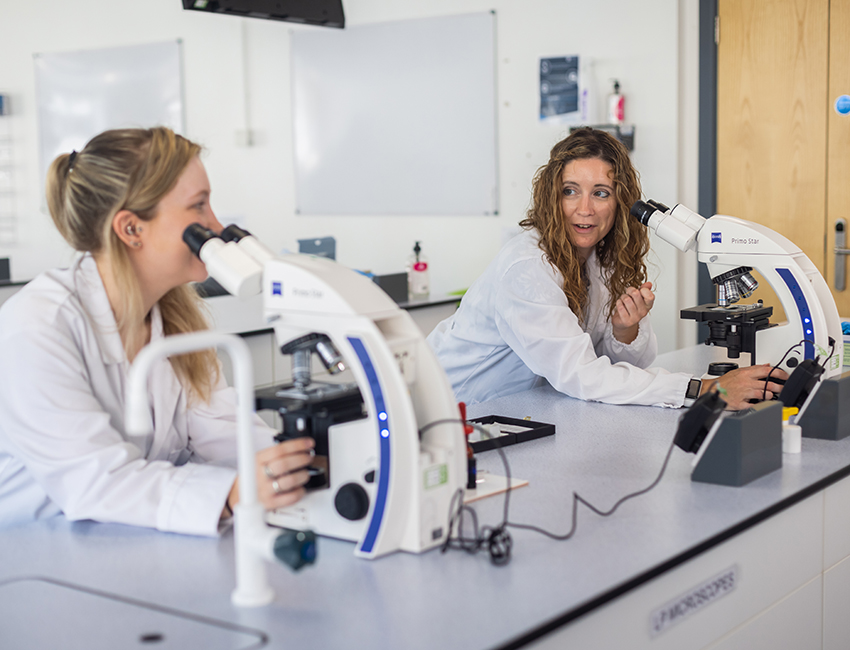With a strong focus on human biology, disease and diagnostics, this course gives you the scientific grounding and clinical insight needed for medical training. You'll develop the skills to understand complex health challenges and apply scientific thinking to real-world healthcare situations.
University of the Year finalist
Recognised for our graduate success, we’re shortlisted for University of the Year in the Times Higher Education Awards 2025.
Overview
Medical scientists explore how the human body works, what causes disease, and how we diagnose and treat illness.
On this clinically focused science degree, you’ll study topics such as anatomy, physiology, genetics, public health, and medical imaging. You’ll learn in small classes with expert lecturers from both scientific and clinical backgrounds, giving you regular access to specialist knowledge and support. You’ll also gain hands-on experience in our laboratories, working with real clinical data and developing practical skills that will form an essential foundation for medicine.
You’ll have the opportunity to carry out your own research project in your final year, exploring a topic that interests you and developing the skills needed for clinical or academic careers. By the time you graduate, you’ll have a strong understanding of human health and disease, practical experience in lab and research settings, and the confidence to take your next step in healthcare.
This course is designed to give you the knowledge and experience needed become a doctor, but it also opens doors to other healthcare careers and postgraduate study, including Physician Associate programmes. Preparation for medical school entry tests like UCAT and GAMSAT is built into the course, and final-year students who are predicted a 2:1 or better and are able to meet all other course entry requirements are guaranteed an interview for our graduate-entry Medicine MBChB.
Course content
On this course, most modules are mandatory. In your final year, you can choose between two optional modules depending on your field of interest.
We regularly review our courses to reflect the latest research and developments in the subject area, as well as feedback from students, employers and the wider sector. As a result, modules may change to ensure the course remains current and relevant.
Careers
Studying Medical Sciences opens the door to a wide range of career paths, especially for those aiming to become doctors or work in healthcare and medical research. You’ll develop skills in scientific investigation, evidence interpretation, data analysis and independent thinking – highly valued in pharmaceutical, medical technology and healthcare sectors.
Alongside this, you’ll build expertise in problem-solving, critical thinking, data evaluation and communication, preparing you for roles that require analytical precision and clear decision-making.
You could progress to a career in:
- Medicine
- Clinical science
- Healthcare research
- Clinical trials coordination
- Medical diagnostics
- Pharmaceutical sales
- Data analysis
- Medical writing
You’ll also be well-positioned to apply for postgraduate study, including graduate-entry MBChB Medicine and MSc Physician Associate.
Course highlights
Teaching and assessment
You’ll learn through a mix of lectures, seminars, group work, interactive workshops and practical lab sessions, all designed to help you apply scientific knowledge in real-world contexts. Teaching takes place in superb laboratory facilities, with opportunities to practise clinical skills and develop key abilities in problem-solving, teamwork and communication.
Teaching and assessment contents
You will be taught through a combination of lectures, seminars, group work, interactive workshops and laboratory practical classes. Interactive workshops take a variety of formats and are intended to enable the application of learning through discussion and small group activities. Seminars enable the discussion and development of understanding of topics covered in lectures.
We pride ourselves on the practical nature of our degree courses. You will undertake practical classes relevant to Medical Sciences in superb teaching laboratories as well as practicing clinical skills that will help your application for graduate-entry Medicine.
In addition, meetings with personal academic tutors are scheduled on at least 4 occasions in the first year and three occasions in each of the other years of a course.
You will use a range of excellent laboratory facilities, computing suites and software relevant to Medical Sciences throughout the course.
The course will enable you to develop your critical thinking, problem design and solving, teamwork, presentation and other learning skills which are essential for your career development.
Entry requirements
UCAS tariff points required: 112
| Qualification | Grade |
|---|---|
| A-level | BBC |
| BTEC National Extended Diploma | DMM |
| T-level | Merit |
Additional entry requirements
- A Level Biology, Human Biology or Chemistry is required.
Other qualifications, such as BTEC in a Science, and Access to Higher Education, will also be considered.
Any questions?
If you have any questions about entry requirements, please call our Admissions Office on 01905 855111 or email admissions@worc.ac.uk.
Fees
Fees contents
UK and EU students
In 2026/27 the standard fee for full-time home and EU undergraduate students on BA/BSc/LLB degrees and FdA/FdSc degrees is £9,790 per year.
Tuition fees are reviewed annually and may increase each year for both new and continuing students.
For more details on course fees, please visit our course fees page.
International students
In 2026/27 the standard tuition fee for full-time international students enrolling on BA/BSc/LLB degrees and FdA/FdSc degrees is £17,200 per year.
Tuition fees are reviewed annually and may increase each year for both new and continuing students.
For more details on course fees, please visit our course fees page.
How to apply
How to apply contents
Applying through UCAS
UCAS is the central organisation through which applications are processed for full-time undergraduate courses in the UK.
Read our how to apply pages for more information on the application process, or if you’d like to apply for part-time study.
Medical Sciences BSc (Hons) – B190
Contact
If you have any questions, please get in touch. We're here to help you every step of the way.
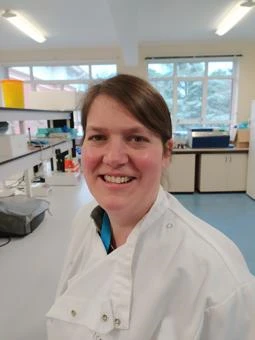
Dr Joanne Whittaker (nee Croudace)
Lecturer in Biomedical Science and Course Leader in Medical Sciences
joanne.whittaker2@worc.ac.ukAdmissions Office
admissions@worc.ac.uk01905 855111More to explore
Open Days
Visiting us is the best way to get a feel for student life at the University of Worcester.

The City of Worcester
Worcester is a welcoming university city with great transport links and plenty of student parking.

Accommodation
Benefit from our accommodation guarantee. We have rooms on campus to suit every budget including en-suite options.

